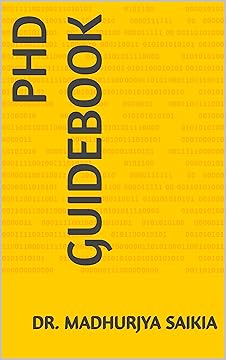When you join places, you come across people; seniors or subordinates who have gotten comfortable with the system. Generally, people have this Superman syndrome to do something overnight or to change the persisting system immediately. Let’s face it, things took time to build and it will take some time to change. If you start shaking the system from the very beginning, people notice and become alert. Therefore, things have to be done in a slow manner so that people get time to sink in. Sudden violent shakes do no good. It rather helps people to gang up against you. Well, you can fight it like a brawler and move ahead. Many people do that. In that process, you may face a lot of heat personally or other vicious ways unimaginable. In some organizations, people go up to character assassination in the heat of the moment.
The other way is the slow way by making yourself comfortable around you. You bring people on your side and convince them through active communication. Sooner or later people give in if you remain persistent with the cause. So, you succeed in achieving your goal without any conflict. Bringing people to your fold will also ensure your future success. At the end of the day, people get along whom they trust. Getting you to trust is the key here.
Campus Placement Guidebook (Click)

PhD Guidebook (Click)
Our posts
1. Family support: Overestimate by students
(https://authenticmedia2020.blogspot.com/2024/04/family-support-overestimate-by-students.html)
2. Knowledge trumps
(https://authenticmedia2020.blogspot.com/2024/04/knowledge-trumps.html)
4. People may not like you all the time
(https://authenticmedia2020.blogspot.com/2024/05/people-may-not-like-you-all-time.html)
5. Retirement Extended
(https://authenticmedia2020.blogspot.com/2024/05/retirement-extended.html)
6. Financial stress
(https://authenticmedia2020.blogspot.com/2024/05/financial-stress.html)
7. No one is thinking about you
(https://authenticmedia2020.blogspot.com/2024/05/no-one-is-thinking-about-you.html)
8. Expectation & over expectation
(https://authenticmedia2020.blogspot.com/2024/06/expectation-over-expectation.html)
9. Two people, two lessons regarding interviews
(https://authenticmedia2020.blogspot.com/2024/06/two-people-two-lessons-regarding.html)
11. Strategy to Write a Paper during PhD:10
(https://authenticmedia2020.blogspot.com/2024/07/strategy-to-write-paper-during-phd.html)
12. Collaboration during PhD to Write a Research Paper:11
(https://authenticmedia2020.blogspot.com/2024/07/collaboration-during-phd-to-write.html)
13. Anger Management
(https://authenticmedia2020.blogspot.com/2024/07/anger-management.html)
14. Value addition
(https://authenticmedia2020.blogspot.com/2024/08/value-addition.html)
15. Accept your reality (https://authenticmedia2020.blogspot.com/2024/08/accept-your-relaity.html)
16. A few observations regarding AI
(https://authenticmedia2020.blogspot.com/2024/08/a-few-observations-regarding-ai.html)
17. Mindset oreientation regarding educational loan
( https://authenticmedia2020.blogspot.com/2024/08/mindset-orientation-regarding.html)
18. Mad Race to Go Abroad
(https://authenticmedia2020.blogspot.com/2024/12/mad-race-to-go-abroad_21.html)
19. Staring in a new place
(https://authenticmedia2020.blogspot.com/2025/01/job-series01.html)
20. Habit of advising
(https://authenticmedia2020.blogspot.com/2025/01/habit-of-advising-job-series02.html#google_vignette)
21. People hate you
(https://authenticmedia2020.blogspot.com/2025/01/people-hate-you-job-series03.html)(https://authenticmedia2020.blogspot.com/2025/01/striking-conversationjob-series04.html)
23.Be a sweetie
(https://authenticmedia2020.blogspot.com/2025/01/be-sweetie.html)
24.For a few dollars more !!!!
(https://authenticmedia2020.blogspot.com/2025/01/for-few-dollars-more-job-series07.html)
25. Too much anger so much stress
(https://authenticmedia2020.blogspot.com/2025/01/too-much-anger-so-much-stress-job.html)
26. With great power comes great responsibility
(https://authenticmedia2020.blogspot.com/2025/01/with-great-power-comes-great.html)
27. Performance Based World
(https://authenticmedia2020.blogspot.com/2025/02/performance-based-world-job-series10.html)
28. Loose Mouth, Lose Job
(https://authenticmedia2020.blogspot.com/2025/02/loose-mouth-lose-job-job-series11.html)
29. Trust- Mistrust
(https://authenticmedia2020.blogspot.com/2025/02/trust-mistrust-job-series12.html)
30.Frenemy
(https://authenticmedia2020.blogspot.com/2025/02/frenemy-job-series13.html)
31. Invest in yourself
(https://authenticmedia2020.blogspot.com/2025/03/invest-in-yourself-job-series14.html)
32. Sitting Ducks
( https://authenticmedia2020.blogspot.com/2025/03/sitting-ducks-job-series15.html)
33. Resilience
(https://authenticmedia2020.blogspot.com/2025/03/resilience.html)
34. Navigating the Journey of Professional Growth: The Importance of Humility and Caution
(https://authenticmedia2020.blogspot.com/2025/04/navigating-journey-of-professional.html)
35.Trial by Fire
(https://authenticmedia2020.blogspot.com/2025/04/trial-by-fire-job-series17.html)
36.Lifestyle
(https://authenticmedia2020.blogspot.com/2025/04/lifestyle-job-series18.html)













